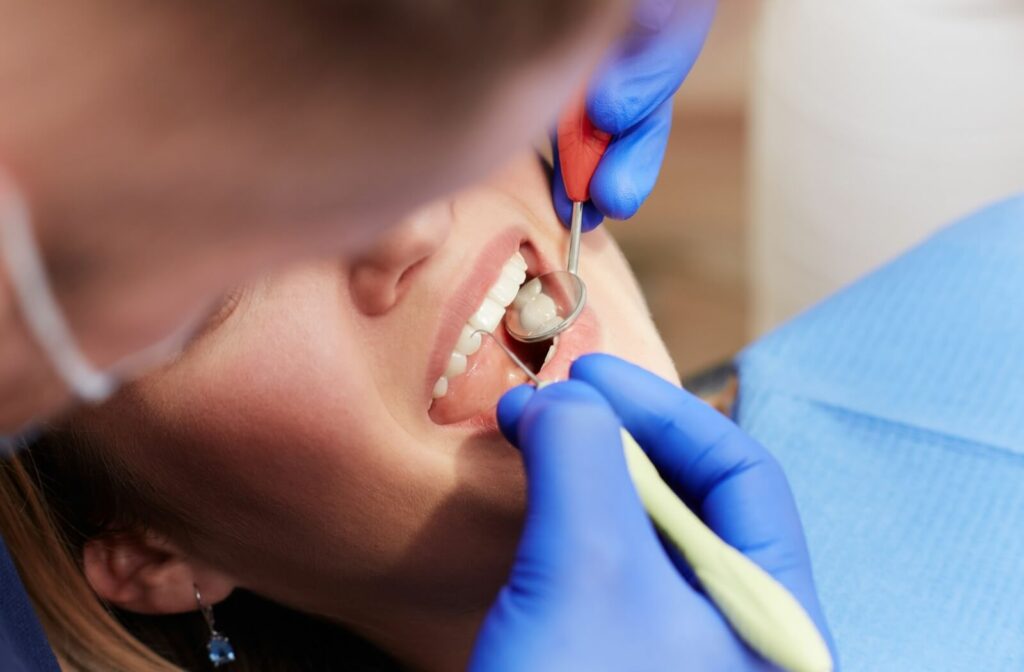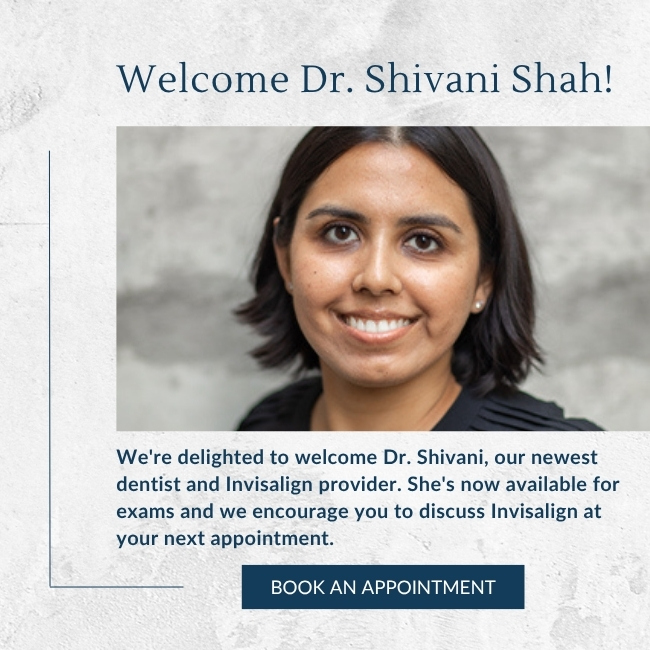When it comes to dental health, cavities are a common concern that many people face. Most of us know that poor oral hygiene can lead to cavities, but there’s often confusion about whether these pesky holes in our teeth can spread from one person to another. In other words, are dental cavities contagious?
The short answer is yes, dental cavities can be considered contagious, as the bacteria that cause cavities can be spread through saliva, often by sharing utensils, kissing, or other close contact.
This is why it’s very important to maintain good oral hygiene and visit your dentist at Belman Dental Centre for regular dental cleanings.
Understanding Dental Cavities
Dental cavities, also known as caries or tooth decay, occur when the hard surface or enamel of the teeth is damaged by acids produced by bacteria. These bacteria feed on sugars from food and drinks, producing acids that gradually erode the enamel. Over time, this erosion creates holes in the teeth, known as cavities.
The primary culprits in cavity formation are specific types of bacteria, particularly Streptococcus mutans and Lactobacilli. When these bacteria accumulate on the teeth’s surface, they form a sticky biofilm known as plaque. If not removed through regular brushing and flossing, plaque hardens into tartar, making it more difficult to remove and increasing the risk of cavities.
The Role of Bacteria in Cavity Formation
The bacteria responsible for cavities are naturally present in the human mouth, but their levels can vary significantly between individuals. Factors such as diet, oral hygiene practices, and genetics can influence bacterial levels. High sugar intake, for instance, provides more fuel for these bacteria, leading to increased acid production and a higher chance of developing cavities.
Can Cavities Be Contagious?
While cavities themselves are not contagious in the traditional sense of the word—like a cold or the flu—the bacteria that cause cavities can indeed be spread from one person to another. This transfer can occur through saliva, which means that sharing utensils, cups, or even kissing can potentially transfer cavity-causing bacteria from one mouth to another.
For example, a parent with high levels of Streptococcus mutans who shares utensils with their child could inadvertently pass these bacteria on to them. In young children, whose teeth are still developing and more susceptible to decay, this bacterial transfer can lead to early childhood cavities.
How Cavities Can Spread
The spread of cavity-causing bacteria is primarily linked to the exchange of saliva. Here are a few common scenarios where bacteria can be shared:
- Sharing Utensils and Cups: Using the same spoon or drinking from the same glass can transfer bacteria between individuals.
- Kissing: Intimate contact, such as kissing, can facilitate the exchange of saliva and, consequently, bacteria.
- Blowing on Food: When parents blow on food to cool it down, saliva droplets can land on the food and be consumed by the child.

Preventive Measures
Understanding the potential for bacteria transfer highlights the importance of preventive measures in maintaining oral health and reducing the risk of cavities. Here are some practical steps to minimize the spread of cavity-causing bacteria:
- Practice Good Oral Hygiene: Brush your teeth at least twice a day and floss daily to remove plaque and reduce bacteria levels. Regular dental exams and cleanings are also essential.
- Limit Sugar Intake: Reducing the consumption of sugary foods and drinks can limit the fuel available for bacteria to produce harmful acids.
- Use Fluoride Products: Fluoride strengthens tooth enamel and makes it more resistant to acid attacks. Use fluoride toothpaste and consider fluoride treatments if recommended by a dentist.
- Avoid Sharing Utensils: Refrain from sharing utensils, especially with young children, to reduce the risk of bacterial transfer.
- Maintain a Balanced Diet: A diet rich in fruits, vegetables, and whole grains supports overall oral health and helps in maintaining a healthy balance of bacteria in the mouth.
- Educate Children: Teach children about the importance of oral hygiene from an early age, encouraging them to brush and floss regularly.
Seal the Deal on Oral Health: Prevent Cavities Before They Start
While dental cavities themselves aren’t contagious, the bacteria responsible for their formation can indeed be spread between individuals. Understanding how these bacteria can be transferred and taking preventive measures can significantly reduce the risk of cavities.
By maintaining good oral hygiene practices, limiting sugar intake, and being mindful of sharing habits, you can protect yourself and your loved ones from the spread of cavity-causing bacteria. Remember, a healthy smile is a shared responsibility, and taking these steps together can promote better dental health for everyone involved.
Take charge of your oral health today by scheduling a comprehensive examination at Belman Dental Centre. Our caring team is ready to help you maintain a healthy, vibrant smile. Book your appointment now to safeguard your teeth from cavity-causing bacteria. Your future self will thank you!




